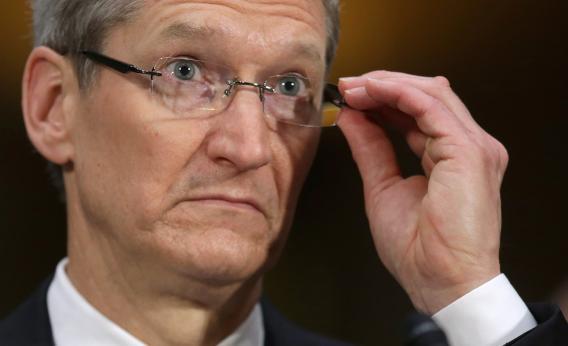Apple has some “incredible plans” for revolutionary new products, chief executive Tim Cook said Tuesday. What those products are, exactly, he wouldn’t say—but he dropped a few hints. Asked about wearable computers, Cook said, “It’s an area where it’s ripe for exploration. … I think there will be tons of companies playing in this.”
One of those companies, Google, has already unveiled its smart glasses. But those don’t do it for Cook.
“There’s nothing that’s going to convince a kid who has never worn glasses or a band or a watch to wear one, or at least I haven’t seen it,” he said. Cook added, “I wear glasses because I have to. I don’t know a lot of people who wear them because they don’t have to.”
Ah, but watches! “I think the wrist is interesting,” Cook mused. “The wrist is natural.”
That’s about as close as Cook came to saying anything specific about the “several more game-changers” that Apple has in the pipeline. Still, it’s about as strong a confirmation as you could hope for that Apple is indeed working on a smart watch.
No doubt people are more accustomed to looking down at their wrist than up at their glasses frames for information—or at least, they used to be. But it’s hard to see how one is any more “natural” than the other, or how either one is more natural than pulling a phone out of your pocket. The interesting question here is not whether people feel more comfortable wearing things on their face or on their wrist. Clearly people have been doing both for many decades. What will really determine the success or failure of these devices is what they do.
Glasses present a unique opportunity to shoot first-person photos and video, and potentially to pull up information about whatever you’re looking at, be it a person, a sporting event, or a historic building. Watches are ideally suited for biometrics, and might be better for discreetly checking a text message.
Isn’t it possible that in five years, rather than debating the merits of watches vs. glasses, a lot of techies will be sporting both?
